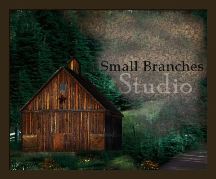Featured Poem: "Intro: What Shall I Say" from:
 Becoming Billie Holiday
Becoming Billie Holidayby Carole Weatherford
Boyds Mills Press/Wordsong
Carole Weatherford's introduces the poem:
When the anti-lynching song Strange Fruit debuted in 1939, Time Magazine’s music critic described Holiday as “a roly-poly young colored woman with a hump in her voice,” the critic claimed that the singer was drawn to “Strange Fruit’s” blues-i-ness rather than its social content. The critic ultimately dubbed the song “a prime piece of musical propaganda” for the National Association for the Advancement of Colored People. Becoming Billie Holiday imagines the response of 25-year-old Billie to the 1939 article.
Intro: What Shall I Say?
The way Mom toted around
that magazine with my photo inside,
you’d have thought
I was Woman of the Year.
I don’t blame Sadie. Wasn’t everyday
that a colored face appeared in Time;
let alone her only child.
I was proud too till I read
what that two-bit critic wrote.
Called me “roly-poly;” said I wouldn’t diet,
was stuck on my own voice
and cared for tunes but not the words.
What did he know
about my taste in food or music?
I never even talked to the cat,
and he dare not cross my path.
If he does, he’ll get a mouthful,
hear just how I got to Harlem
and became Lady Day.
Oh, the tales I’d tell.
***
This poem (and the project as a whole) desires to set the record straight, to portray Lady Day in a sympathetic light that honors her way of understanding her world, her desires, and to reclaim her personal voice to work in counterpoint to the way Billie was portrayed in the media.
Even though there are historical documents that can be accessed, such as the one from the Time, they only tell part of her story and often from an arm's length distance but the poems invite us in for a closer examination of Lady Day's life and experience that still are relevant and fascinating today. Here's what Carole Weatherford says about the project:
Billie Holiday is my muse and she herself enlisted me to write her book. Ialmost didn't write it for fear that it would have limited appeal. Then an
eighth grade girl admiring Billie's likeness at the Great
Blacks in Wax Museum convinced me that Lady Day never ceases to
be hip.
I wrote this book because Billie deserves to be better understood. I tried to portray her with empathy. My advance copy of the book arrived the day after what would have been Billie’s 93rd birthday—a belated gift. I thanked her for letting her song come through me.
***
You can find out more about the book at the publisher's site: Wordsongand read more of her discussion on how her verse memoir Becoming Billie Holiday came to be as Carole's blog tour continues this week.
Next stop: April 7th at Beth Revis's blog : Writing It Out where Carole talks about her inspiration and approach to writing the poems.
***
You might also be interested in listening to Lady Day sing her iconic song:
"Strange Fruit"
and if you're a jazz fan, here's a review of the book from all about jazz.
****
Carole Boston Weatherford is a New York Times best-selling author and has 32 books of poetry, nonfiction and children's literature, including Moses: When Harriet Tubman Led Her People to Freedom, winner of an NAACP Image Award, Caldecott Honor Medal and Coretta Scott King Award for Illustration. Becoming Billie Holiday and Before John Was a Jazz Giant both won Coretta Scott King Honors; Birmingham, 1963 won the Lee Bennett Hopkins Poetry Award and the Jefferson Cup; The Sound that Jazz Makes won the Carter G. Woodson Award from National Council for the Social Studies; and Remember the Bridge: Poems of a People and Freedom on the Menu: The Greensboro Sit-ins both won North Carolina Juvenile Literature Awards. Her books have been short-listed by the International Reading Association, National Council for the Social Studies, and Bank Street College of Education and named best books of the year by the American Library Association, School Library Journal, Kirkus Reviews, and New York Public Library. Winner of the Ragan-Rubin Award from the North Carolina English Teachers Association and a two-time North Carolina Arts Council Writers Fellow, Carole teaches at Fayetteville State University and resides in High Point, N.C., with her family. A Baltimore-native, Carole is the daughter of Carolyn Boston and the late Joseph A. Boston, Jr.
***
Purchase Information: Amazon and elsewhere.
***




No comments:
Post a Comment